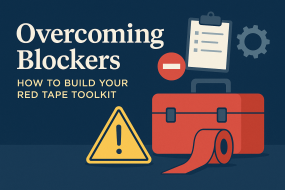
An FAQ (Frequently Asked Questions) page is more than just a convenience for visitors. It’s an SEO powerhouse and a vital part of your website’s customer service experience. When structured correctly, it helps search engines understand your site better, provides value to users, and improves your overall authority online.
Why Every Website Needs an FAQ Page
An FAQ page provides quick answers to common questions, reduces the burden on your customer support team, and improves user satisfaction. But beyond functionality, it plays an important role in SEO. Search engines like Google love structured, informative content, and FAQ pages often appear in featured snippets and “People Also Ask” sections.
How to Research and Identify the Right Questions
Start by gathering real questions that your customers are asking. Check customer service emails, support tickets, chat logs, and your internal search data. Google Search Console is a valuable tool for spotting queries that already bring users to your site. Don’t overlook community forums like Reddit, Quora, or niche-specific Facebook groups. Also, explore Google’s autocomplete suggestions and “People Also Ask” boxes for keyword-rich questions that reflect user intent.
Writing Clear, Concise, and Informative Answers
When crafting your answers, clarity is essential. Aim for short, direct responses—ideally within one to three sentences. Avoid industry jargon unless you explain it clearly. Use simple language and keep the tone consistent with your brand. If further explanation is needed, include internal links to blog posts, help guides, or service pages. Where appropriate, embed visuals like images or short tutorial videos to help users better understand the information.
Structuring Your FAQ Page for Better User Experience
Instead of listing all questions on a single page, group them by categories such as pricing, product usage, returns, or technical issues. This helps users find answers faster and improves content organization for search engines. For websites with large amounts of content, create multiple FAQ pages for different sections, linking them from a central FAQ hub. Also, consider adding a search bar to the FAQ page for easier navigation.
On-Page SEO Best Practices for FAQ Pages
To optimize your FAQ page for search engines, start with your meta title and description. Include your primary keywords and ensure the title is descriptive and engaging. Use a clean, readable URL such as yoursite.com/faq. Incorporate relevant keywords in your headers and within the first 100 words of content. Most importantly, implement FAQPage schema markup to increase your chances of appearing in Google’s rich results. This structured data tells search engines that your content follows a question-and-answer format.
Enhancing Design and Accessibility for Better Engagement
A successful FAQ page should be easy to navigate, mobile-friendly, and fast-loading. Use collapsible menus or accordion-style layouts to avoid overwhelming users with too much text. Make sure your FAQ page is visible in your main navigation menu or footer so users can access it easily. Include a contact button or live chat option in case visitors can’t find the answer they need.
How to Keep Your FAQ Page Updated and Relevant
Treat your FAQ page as a living resource. Review it regularly—ideally every quarter—to ensure all information is accurate and up to date. Add new questions based on emerging user concerns and update or remove outdated content. Monitor analytics such as bounce rate, average time on page, and user feedback to improve the content continuously. A simple “Was this helpful?” prompt under each answer can also provide useful insight.
Benefits of an Optimized FAQ Page for SEO and Conversions
An optimized FAQ page can boost your organic traffic, reduce bounce rates, and lead users deeper into your site through internal linking. By addressing potential objections and questions before they arise, you can also increase conversions. Furthermore, structured answers that match user intent help improve your credibility and domain authority.
Conclusion
Creating a useful and well-optimized FAQ page requires planning, research, and attention to detail. From identifying relevant questions to optimizing each answer with SEO best practices, your FAQ page can become a central resource for both users and search engines. Invest the time in making it thorough, helpful, and easy to navigate, and you’ll see long-term benefits in traffic, trust, and user satisfaction.








No Comments